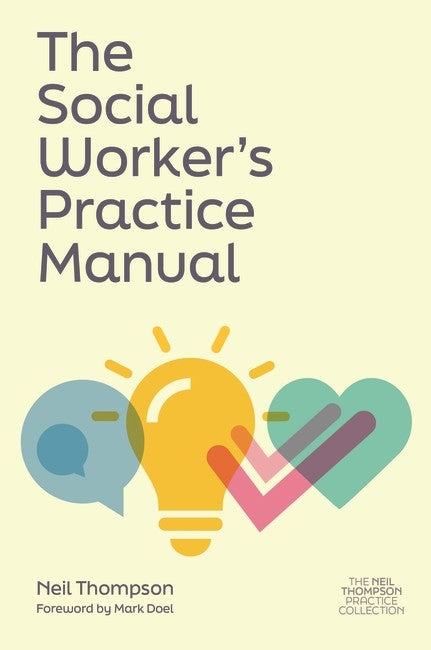Description
Contents Welcome! About the author Acknowledgements Foreword by Professor Mark Doel Preface Introduction Why a manual? Who is it for? How do I use it? 1.Begin at the beginning What is social work? Who needs social work? What is the value of social work? 2.Attitudes and values Why are you in social work? Why are you in this persons life? Personal and professional values 3.Being prepared Social work knowledge The three Rs Confidence Preparing yourself 4.Making a difference Theorizing practice Social work processes Social work skills Social work tools 5.Thinking holistically The organizational context The legal and policy context The social context The political context The historical context 6.Working in partnership With clients With carers With fellow professionals Why partnership? 7.Equality, diversity and social justice Equality and difference Difference and diversity Discrimination and social justice Pitfalls to avoid Principles of good practice 8.Being a professional The alternatives Knowledge Skills Values Accountability Development Identity Pride Authentic professionalism 9.Spirituality The importance of religion Beyond religion The implications for practice 10. Reflective practice What is reflective practice? What is critical practice? What is critically reflective practice? Why do we need critically reflective practice? 11. Growth and change Ages and stages Child development Adolescent development Adult transitions Growing old Facing death Identity and its importance 12. Health and well-being Defining health and well-being Social aspects of health and well-being Health and disability The social work role in relation to health Mental health and well-being Conclusion 13. Human connection Authentic connection Listening Getting the tone right Nonverbal communication Empathy Social factors 14. Working with families Family ideology Family problems and solutions Family scripts Power dynamics Conclusion 15. Working with groups Why use groupwork? Planning and purpose Managing the dynamics Rising to the challenges 16. Working with communities Why work with communities? Capacity building Effective networking Conclusion 17. Residential work Home or institution? Time and space Conclusion 18. Court work Why court work? What is expected? What skills are needed? Conclusion 19. Report writing and record keeping Why we write What we write How we write 20. Managing conflict Clarifying conflict The four levels The RED approach Conclusion 21. Loss, grief and trauma The grief paradox: prevalence and invisibility Beyond stages Responding to loss Responding to trauma Conclusion 22. Risk and decision making Balancing risk Assessing risk Managing risk Conclusion 23. Focusing on outcomes What is an outcome? Why are outcomes important? Systematic practice Conclusion 24. Handling dilemmas and tensions What is a dilemma? Managing dilemmas and tensions Conclusion 25. Handling criticism Doing societys dirty work Understanding the media Complaints Dont take it personally! Conclusion 26. Pitfalls to avoid Types of pitfall Thoughts Feelings Actions Values Conclusion 27. Surviving and thriving Motivation and morale Stress and burnout Self-care Surviving and thriving 28. Managing your placement experience Clarifying expectations Focusing on learning Using supervision Conclusion 29. Managing your career What is a career? Upwards or onwards? The importance of consolidation Conclusion 30. Keeping the learning going The importance of learning Obstacles to learning Making learning happen Self-directed learning Conclusion Conclusion Guide to further learning References
Neil has 45 years of experience in the caring professions as a practitioner, manager, educator, writer and adviser. He has won awards for his work, including a Lifetime Achievement Award from BASW Cymru. He is renowned for his ability to express complex ideas clearly without oversimplifying them and for making theory relevant to practice.

